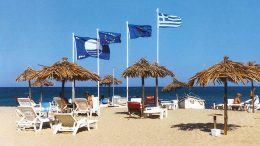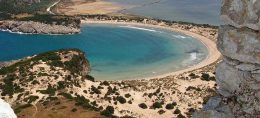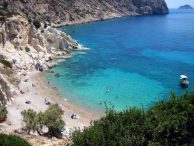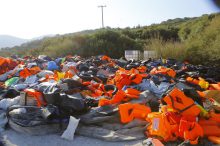Tag: Greece
-

Greece earns third place worldwide in Blue Flag certification
Greece has earned fourth place in Europe with regard to the quality of its bathing waters for this year, according to data published by the European Environment Agency on Tuesday. The report noted that 97.2 percent of areas inspected were deemed to be outstanding. The organization also announced that the country was positioned third worldwide…
-

The Peloponnese in Greece is the best place in Europe to visit in 2016
Travel guide publisher Lonely Planet has released its annual list of the best places to visit in Europe, this year opting for a mix of the usual suspects (Venice, the Dordogne) and a scattering of off-the-beaten track places such as the Dutch island of Texel. Topping the list is the the Peloponnese, a region often overlooked by…
-

Chios named one of the best diving sites in Europe
As the Greek summer approaches, an international distinction gives Chios a well-deserved and much needed boost. One of the most beautiful islands of the Aegean, Chios was a travel destination for the conoisseurs, attracting high-profile tourists. As the homeland of many shipping magnates, and a place blessed with the mastique trees that have been central…
-

Abandoned life jackets in Lesbos giving new hope to refugees
Life jackets are a poignant symbol of the refugee crisis in Greece. Thousands of them which had been abandoned on the beaches of Lesbos are now giving life to a new project which will help the people who once wore the vests while also addressing a huge environmental problem. Jai Mexis and his partner Irene Psifidi…
